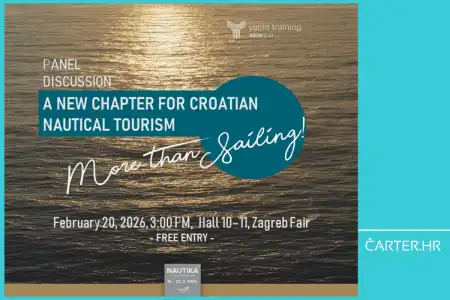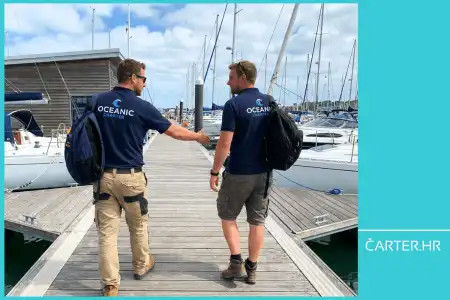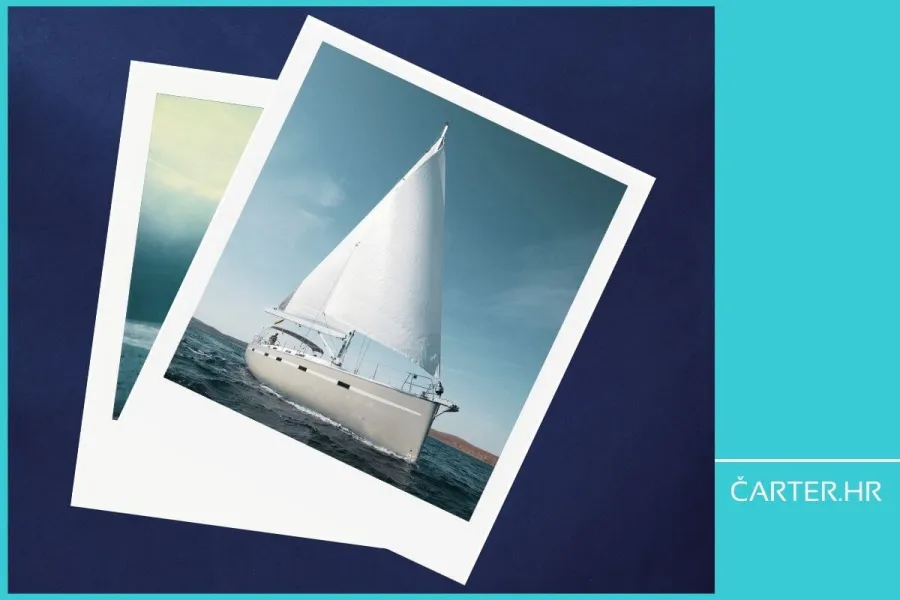
- 11.08.2025.
- News, User experience
Most yacht charter companies still operate under the “rent the boat and that’s it” model. The boat is cleaned, prepped, handed over for charter, and that’s the end of the story. But guests no longer come just for the sea and sailing. They come because they want to experience the location. They want to see how people actually live on the islands, what the locals do, where to buy olive oil…
More and more guests are avoiding expensive restaurants and looking for small taverns with daily specials. They want a guide who won’t just take them to the usual attractions but will show them where to enjoy a good glass of wine.
Realistically, a yacht charter that sticks only to boats gets lost in the crowd. Not because it’s bad, but because it’s replaceable.
Yacht charter fleets are similar, price lists too, and the offer grows from season to season.
And guests? They’ll remember you by how they felt. And that’s easiest to achieve when you give them an experience that includes people, places, and habits of the region.
On your end, all it takes is the willingness to try something new.
One agreement with a local wine producer, one dinner at a local tavern, one morning delivery of fresh fruit – can be the beginning that changes everything.
You don’t need to offer ten services right away. Start with two or three that complement each other, that you can manage, and that make sense for your route. You can build from there.
Why local connection matters in the yacht charter industry
Guests who come care about the sea, the coves, and the beaches. But more and more of them ask where to eat well, where the local market is, where to buy homemade wine or olive oil.
They don’t want to cook every day, but they do want to know what they’re eating.
They don’t want to improvise daily with plans, but they want to experience something new.
And that’s where your yacht charter company becomes something more – a link between the guest and the destination.
And your local connection allows you to offer the guest something real.
And real experiences put you a step ahead of the competition. It doesn’t require much effort, just a good relationship with the local community. And once you build it, that relationship starts working in your favor.
Local connection also brings very practical benefits:
- You don’t need to hire additional staff or invest in infrastructure. You work with existing resources around you.
- Each agreement is an opportunity for commission, discount, or service exchange that benefits both sides.
- Guests feel more trust when they know the recommendation comes from someone who lives off that destination.
- When a guest has a positive experience, they will almost certainly mention it in a review or recommend you to others. And that’s the kind of promotion no ad can buy.
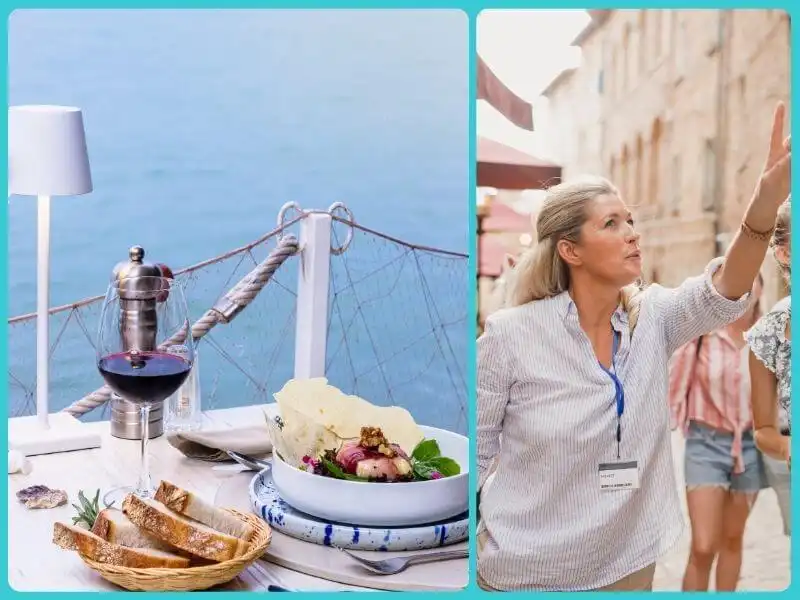
Examples of partnerships that work
You don’t need a large budget or extra staff to start building strategic partnerships. All you need is goodwill and basic organization.
You also need the willingness to change the way you view your business.
Yacht charter guests aren’t looking for mass tours, but authentic, simple experiences that not everyone offers. That’s your advantage if you know how to use it.
Here are a few ideas that can be implemented without major investment and can increase the value you offer (and the revenue you earn):
Weekly delivery of local products
Connect with a family farm that can deliver seasonal fruit, vegetables, cheese, dried figs, wine, olive oil, etc. Guests can order in advance via a form on your website. This gives the guest an immediate sense at check-in that they are being cared for, and you earn through margin or partnership agreements.
Reservations in authentic restaurants
Instead of having the guest browse reviews and take a chance, you can recommend and even book a restaurant for them. Make an arrangement with the restaurant for a special menu, welcome drink, etc. Some restaurants are willing to pay commission, while others simply appreciate the referral and return the favor through other services.
Local guided tours
If there’s a licensed guide nearby who works with small groups, it’s worth including them in your offer.
Guests often want to learn more about the history of the places they visit but don’t want to join large tours. Tours through old fishing ports, bike rides to olive groves, or wine tastings can be organized without your direct involvement. It’s enough to arrange a time and provide the contact.
Private workshops and experiences
More and more guests want to learn something new, even just out of curiosity. An olive grower showing how olives are harvested, a fisherman offering guests to join him at sea, or a local woman leading a traditional pastry-making workshop. These are the experiences people remember and talk about.
Transfers and local logistics
Connect with local taxi drivers who are willing to work at agreed prices. Some guests arrive from the airport looking for a way to reach your marina.
If you have a transportation arrangement, everything goes faster, simpler, and more pleasant for the guest. And there’s less chance of bad experiences with unlicensed drivers.
None of this involves complicated arrangements, but rather logical partnerships that benefit both you and the local community.
And it doesn’t mean expanding into new lines of business, but offering the guest what they would look for anyway – without wasting time or energy.
How to design an attractive offer through partnerships
As mentioned before, you don’t need to offer 10 new services right away. Start with something simple.
It’s enough to recognize what guests are interested in and how you can help them experience something more.
And the best ideas often come from practice. You surely hear the same questions repeatedly during the season, such as:
- Where can we eat local food that’s not too expensive?
- Is there a winery on the island?
- Who sells real olive oil?
- What do you recommend for kids?
- Is there any event nearby this week?
Even based on these questions, you can create a concrete offer. For example, if you know of a family tavern with great food, a winery with tastings, or an olive oil producer who can deliver oil to the boat, contact them and make an arrangement. Or include their information when sending details to guests before arrival.
You don’t need to handle everything yourself, but you can be the link.
Write down the contacts of your potential partners and define the basics:
- What does the guest get?
- What is the price?
- How is the time arranged?
- How is payment made?
The guest must know what to expect. You should clearly state: “Wine tasting lasts 1 hour, includes 5 different wines and an appetizer,” along with the price and payment methods. A clear offer gives a sense of security.
And skippers are extremely important here. They’re the ones guests ask, “Where are we going tonight?” or “Do you have the number of a winery?” Your skippers need to know about the agreed partners and that they should recommend them.
Note: Don’t make any partnership arrangements blindly. Try what they offer yourself. Go to dinner, visit the local guide, taste the wine, try the oil… If something isn’t good enough for you, it’s not good enough for your guests.
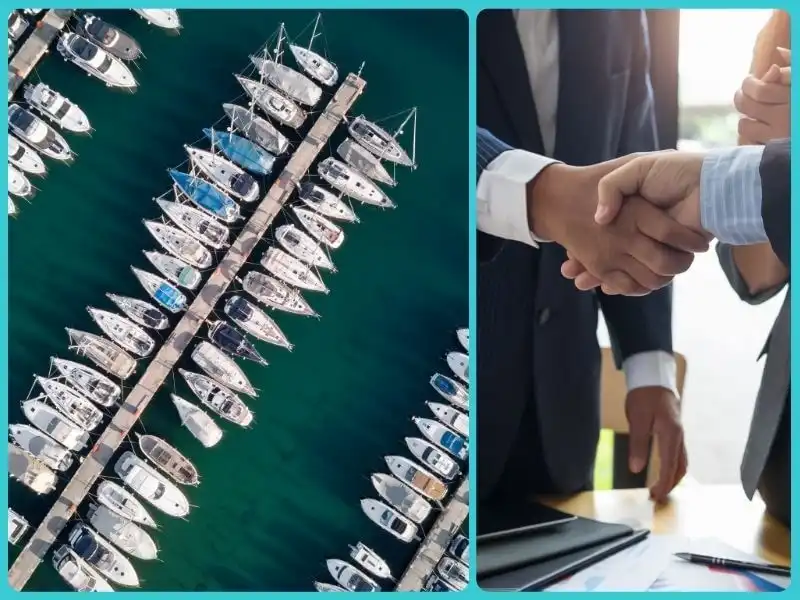
Practical guidelines for starting a partnership
If you want to gain additional value from your yacht charter offer through collaborations with local partners, it’s important to start smart and gradually.
It’s enough to begin with one well-structured partnership. Long-term collaborations usually begin with very simple agreements and develop organically from a specific need.
1. Make an overview of local opportunities
Start literally with a list of familiar names. Within the marina area, you surely already know who does what, who has a good reputation, and who relies on tourism as a source of income. Focus on small and medium producers and hospitality providers, as they are usually the ones who can respond quickly and to whom your partnership means more than it would to a large chain.
What to look for:
- Family farms offering local products (cheese, wine, honey, oil, etc.)
- Taverns that don’t have online booking but offer good food and have available slots
- People who lead themed walks, bike or kayak tours, fishing experiences
- Winemakers who offer tastings or organize dinners for guests
- Craftsmen and service providers available to guests on site (mechanics, hairdressers, massage therapists)
2. Establish personal contact
In smaller communities, communication is still most effective when it’s personal.
Instead of sending an email, go in person, introduce yourself, explain your idea and specific need. For example: “Guests constantly ask us where they can eat something local. Can you accommodate people once a week with a reservation?”
3. Test the partnership on a small scale
Before offering anything to guests, test the partnership.
Agree on one order or one dinner. Let it be a trial case where everyone sees how the system works. Invite the skipper to be present as well. Ask the guest for honest feedback. If everything goes well, continue. If something goes wrong, fix it right away.
4. Clearly define the terms
A good agreement saves time (and nerves) later.
So clearly define:
- Who takes reservations and how
- How the guest pays (to you, the partner, in advance)
- What happens if the guest cancels
- How complaints are handled
- What your share in the deal is
A symbolic example: If the partner offers a service (dinner, tasting, etc.) for €50, you can agree to charge the guest €60 and keep €10 for yourself. But this must be clear to both the partner and you.
5. Include the offer in your communication
You don’t need a massive marketing campaign. Make a flyer with partner names, a photo, the price, and a description of the offer. Place it on the boat, send it via email, explain it to the skipper. Guests who receive information in advance will be more likely to try what you offer and will feel that you’ve thought about their needs.
6. Be ready to adapt
Not every agreement will be sustainable. Someone may stop operating, someone else may not be able to fulfill the deal. That’s okay. What’s important is to react quickly and not offer guests something that no longer works. It’s better to have two solid and stable partnerships than ten on paper that no one uses.

How local partnerships turn a boat rental into an experience
People are looking for something that makes them feel like they’ve truly gotten to know the place they’re sailing through.
They don’t want just navigation instructions and a place to sleep, but also a recommendation on where to eat something truly local or where to swim without the crowds.
When you as a yacht charter company have those answers ready, that sets you apart. You no longer appear to guests as someone who just rents boats, but as someone who knows what they’re doing and who’s connected to the area.
And if the guest receives information that saves them time, gives them something new, and helps them find their way, they’ll remember it. And when they remember it, they talk about it. And when they talk about it, a chain of people is created who want the same thing. That’s where the power of partnership lies.
Strategic partnerships are one of the most logical ways to increase the value of your own offer without major costs.
The real goal is to connect with people who already do the work and who just need a channel to reach new guests.
The key is to start building a network that makes sense for you and your fleet.
This is also a generally worthwhile move. Your yacht charter gains added value, the local community grows stronger, and the guest leaves satisfied with a sense that they experienced something real.
Next year, they’ll return not only because of your fleet, but because of everything you enabled them to experience in their own way.
All you need to do is sit down, call a few people, and start the conversation. The rest comes naturally.
Check who you can connect with. Yachtcharter.hr helps you find local partners and create an offer that guests remember.
Sign up for our newsletter and get the latest updates, tools, and opportunities for connection in the yacht charter industry.
Categories of trends
- News
- Sale
- Marketing
- SEO
- Web design
- Social media
- Technology
- Regulations
- Management
- Education
- Finances
- User experience
Newsletter
Sign up for the newsletter and receive the latest trends and tips straight to your inbox


